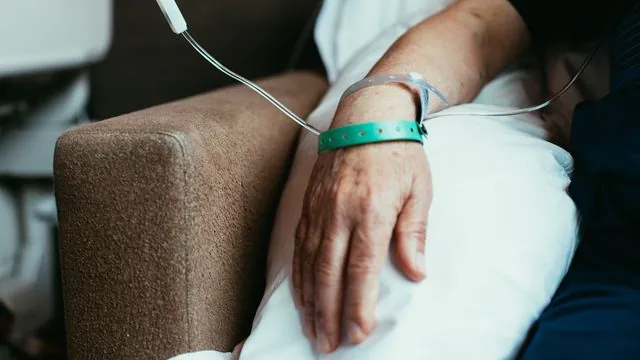
Shocking Link Found: Older Cancer Survivors Face Double the Heart Risks Due to Chemotherapy!
2024-09-23
Author: Mei
Shocking Link Found: Older Cancer Survivors Face Double the Heart Risks Due to Chemotherapy!
A recent study reveals a startling increase in cardiovascular risks for older cancer survivors, particularly those who underwent chemotherapy. Patients in this demographic are at a heightened risk for severe cardiovascular events such as strokes, heart attacks, and heart failure.
This important secondary analysis emerges from a randomized, double-blind, placebo-controlled clinical trial, published in the prestigious journal Cancer. Dr. Suzanne Orchard from Monash University, who spearheaded the study, noted, “Our research adds to the growing evidence that cancer-related cardiovascular disease poses a significant threat to survivors of cancer. The implications can severely affect both their quality of life and longevity. However, early screening and preventive strategies could potentially alleviate some of these risks.
To understand the correlation between cancer and cardiovascular events, the research team meticulously compiled clinical data, including cancer diagnoses and cardiovascular issues, using medical records, participant surveys, and hospital admissions data. They leveraged data from the Aspirin in Reducing Events in the Elderly (ASPREE) trial, involving over 15,000 participants aged 70 and above from both Australia and the United States. During the study's average follow-up of 4.6 years, 1,392 participants developed cancer.
The researchers monitored the occurrence of cardiovascular disease (CVD) events—such as strokes and heart attacks—comparing cancer survivors to those who remained cancer-free. Their findings were alarming: cancer survivors experienced cardiovascular events at a rate of 20.8 per 1,000 person-years, more than double the rate of 10.3 events per 1,000 person-years observed in cancer-free individuals.
Particularly concerning is that chemotherapy alone was linked to a twofold increase in cardiovascular risks. This underscores the long-term damage that can result from cancer treatments, indicating that the risks persist even after considering conventional factors like high blood pressure and diabetes.
In a closer look at different cancer types and treatments, the study discovered that those diagnosed with metastatic cancer, blood cancers, and lung cancers exhibited the highest rates of cardiovascular issues, suggesting that certain cancers indeed heighten cardiovascular vulnerability more than others.
Interestingly, the ASPREE trial also examined the role of aspirin in mitigating cardiovascular events in these patients but found no significant protective effects.
The findings of this study not only highlight a critical aspect of post-cancer care but also serve as a call to action for improved monitoring and preventive measures for cardiovascular health in cancer survivors. Given the alarming rate of cardiovascular diseases among this vulnerable group, it is imperative that healthcare providers prioritize cardiovascular screenings as a standard part of follow-up care for older cancer survivors.
As research continues to shed light on the complex interplay between cancer treatments and long-term health outcomes, survivors must stay informed and advocate for comprehensive care that addresses both their cancer history and the associated cardiovascular risks. Remember, knowledge is power—especially when it comes to your health!




 Brasil (PT)
Brasil (PT)
 Canada (EN)
Canada (EN)
 Chile (ES)
Chile (ES)
 España (ES)
España (ES)
 France (FR)
France (FR)
 Hong Kong (EN)
Hong Kong (EN)
 Italia (IT)
Italia (IT)
 日本 (JA)
日本 (JA)
 Magyarország (HU)
Magyarország (HU)
 Norge (NO)
Norge (NO)
 Polska (PL)
Polska (PL)
 Schweiz (DE)
Schweiz (DE)
 Singapore (EN)
Singapore (EN)
 Sverige (SV)
Sverige (SV)
 Suomi (FI)
Suomi (FI)
 Türkiye (TR)
Türkiye (TR)